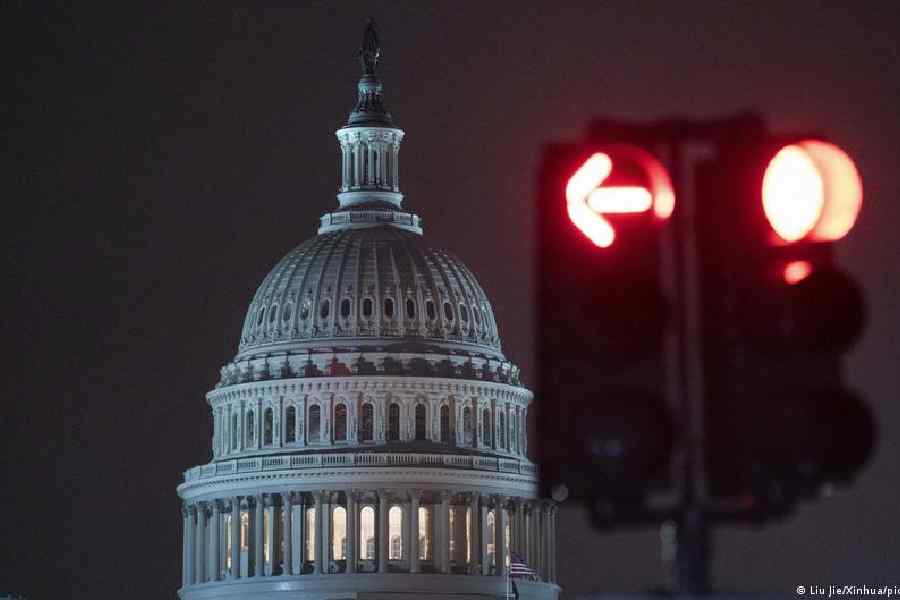Fitch downgraded the United States' credit rating on Tuesday after "repeated debt-limit standoffs and last-minute resolutions" eroded the agency's confidence in the government's ability to manage its debts.
The change has surprised financial markets and drawn strong criticism from both the White House and the US Treasury.
What did Fitch say?
The American agency lowered the US from the highest AAA credit rating to AA+, saying it reflects an expected fiscal deterioration over the next three years. A generally growing debt burden coupled with an "erosion of governance" has "manifested in repeated debt limit standoffs and last-minute resolutions," Fitch said.
"In Fitch's view, there has been a steady deterioration in standards of governance over the last 20 years, including on fiscal and debt matters, notwithstanding the June bipartisan agreement to suspend the debt limit until January 2025," it said.
The move comes two months after Democratic President Joe Biden and the Republican-controlled House of Representatives reached a debt ceiling agreement following months of stalemate as the latter used it as leverage to force Biden into keeping nondefense spending roughly flat.
Fitch had first placed the country's credit on "rating watch negative" in May but did not change this even after the debt ceiling was raised.
This is now the second such agency in history to have lowered the US credit rating which signifies the country's ability to pay off its debts. The S&P in 2011 had downgraded the US from AAA to AA+ owing to a similar political tussle over the debt ceiling.
A lower credit rating translates into a higher cost of borrowing for the government.
US Treasury calls downgrade 'arbitrary'
US Treasury Secretary Janet Yellen said she "strongly" disagreed with the change and called it "arbitrary and based on outdated data."
In a statement, she said that Fitch's quantitative ratings model declined between 2018 and 2020, but the agency was only announcing it now despite an improvement in indicators.
Yellen contended that "(US) Treasury securities remain the world's preeminent safe and liquid asset, and that the American economy is fundamentally strong."
White House Press Secretary Karine Jean-Pierre also dismissed the change, saying it "defies reality."
What does this mean for financial markets?
More than a decade ago, when S&P lowered the government's credit rating, US stocks fell and the impact of the cut was felt across global stock markets. This was exasperated by an already unfolding financial crisis in the eurozone.
Ironically, US Treasury prices had risen because investors switched to safer government-backed investments from volatile equities — a common sight during uncertain times.
In May, an analytical report by Moody's investor services said that a downgrade would set off a cascade of credit implications and downgrades from several other institutions.
However, analysts expect the impact to be limited.
Leading US analyst at Oxford Economics, John Canavan, told AFP news agency the move should not have a lasting impact on the market. "One key reason for that is that the S&P downgrade more than a decade ago already broke the dam on this front," he said. He conceded that it could have a psychological effect in the short term.
Keith Lerner, co-chief investment officer at Truist Advisory Services told Reuters news agency that the news was "unexpected" and "came from left field."
"As far as the market impact, it's uncertain right now. The market is at a point where it's somewhat vulnerable to bad news," he said.











